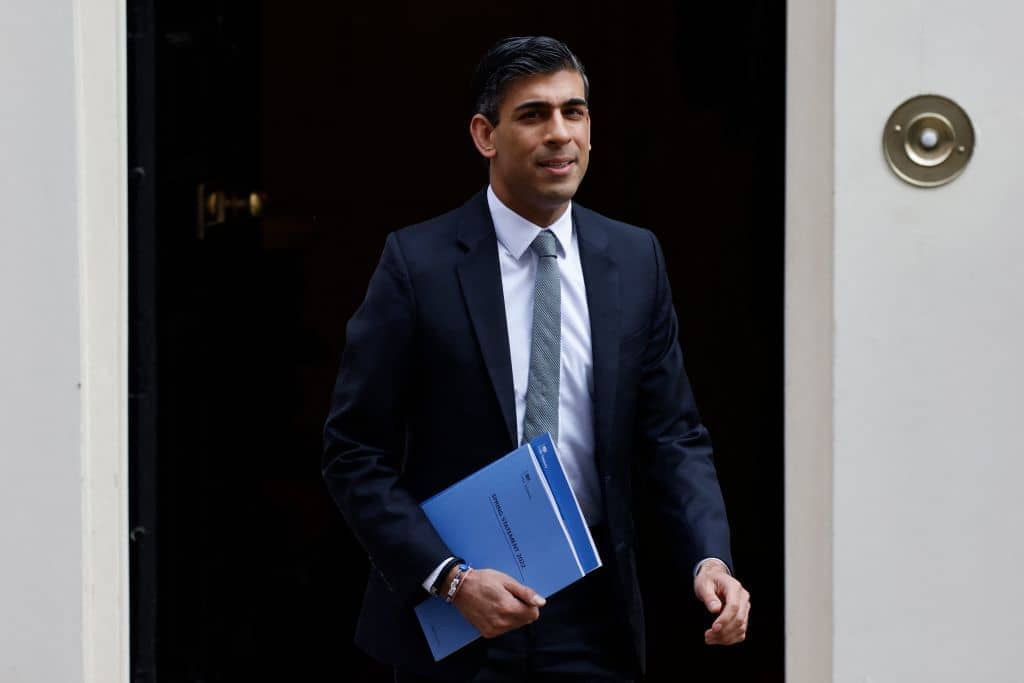Today’s spring statement may not have been a proper Budget – but it could prove to be one of the most significant moments in Rishi Sunak’s time as Chancellor.
At a time when families are facing the double-edged sword of soaring bills and wages falling behind inflation, Sunak was under pressure to offer reassurance. But inflation, which we found out this morning is heading for a 40-year high, is also biting the Treasury. The Chancellor’s response to this dilemma came in the form of several major tax announcements, all targeted at reducing costs for the lowest paid. But Sunak also doubled down on less welcome policies which he insisted are vital for balancing the books.
National Insurance will rise, as expected, next month by 2.5 percentage points. Sunak made no apologies for keeping it. ‘If it goes, then so does the funding,’ he said, in another bid to connect in people’s minds that more money for the NHS is linked to more tax. But to soften the blow the NI-free threshold has been lifted by nearly £3,000, up to £12,570, bringing it in line with the income tax personal allowance. This will act as a welcome source of tax relief for many when it comes into effect in July. Fuel duty will also be cut by 5p per litre – which amounts to roughly £2.5 billion per year – for the next 12 months. (Petrol is currently 165p a litre, up from 125p only a year ago.)
The Chancellor had little choice in playing a relatively conservative hand
But Sunak’s biggest promise was to cut the basic rate of income tax by 2024: from 20p to 19p, a ‘£5 billion tax cut for over 30 million people’. So Sunak did indeed deliver the tax-cutting mini-Budget he promised, to the loud applause of his fellow Tory MPs in the chamber: using around half the fiscal headroom newly forecast by the OBR, about £8.7 billion next year.
But is it as generous as it seems? The OBR calculates that Sunak’s tax cuts have ‘undone just over a quarter of the overall value of the personal tax rises he announced last year and around a sixth of the overall net tax rises he has announced since becoming Chancellor.’ That means that corporation tax hikes, freezes to personal allowance thresholds, and the NI levy overall still drastically outweigh the cuts announced today.
This means that the tax burden only continues to increase: with the tax take rising from 34.4 per cent of GDP in 2021-22 to 35.5 next year, despite these new tax cuts. It’s estimated to hit 36.3 per cent in 2025-26. The tax burden had been heading to a 71-year high already: now it looks like a 77-year high could be hit in four years’ time. All this is made worse by rather abysmal growth figures, which have been downgraded considerably for this financial year, from 6 per cent to 3.8 per cent.
As expected, there was no update about another round of support for increasing energy bills: an announcement that is much more likely to come in the autumn Budget, around the same time that Ofgem reassesses the energy price cap.
This isn’t a surprise: Sunak has been clear for months now that the Treasury is not going to be able to relieve every financial burden that comes our way, now or in future. But with the tax burden still on the rise and wages falling behind inflation, the squeeze is soon to feel worse, with the OBR projecting a fall of 2.2 per cent in real disposable incomes this year, ‘the largest fall in a single financial year since ONS records began in 1956-57.’
But the Chancellor had little choice in playing a relatively conservative hand: with inflation and interest rates both set to rise further, the OBR now predicts debt service payments alone are going to cost £83 billion this year – nearly four times higher than what was spent last year. This was always Sunak’s fear, and one that wasn’t taken seriously in Whitehall: that the amenable circumstances for borrowing billions of pounds would evaporate, quickly.
One of the biggest challenges the Chancellor faces ahead of the next election is that we will soon be spending more on servicing the debt than we do on defence. Finding the funds will be hard enough; explaining that we’re spending billions for nothing new will be a challenge of a different magnitude.







Comments